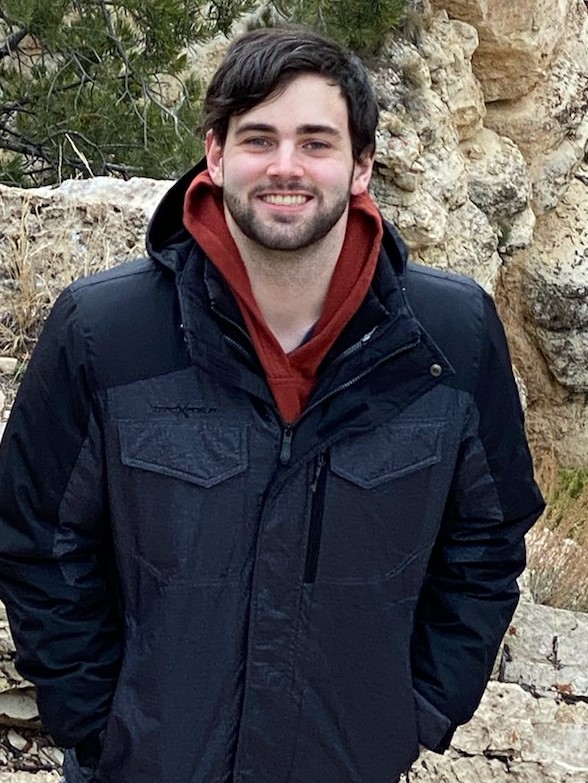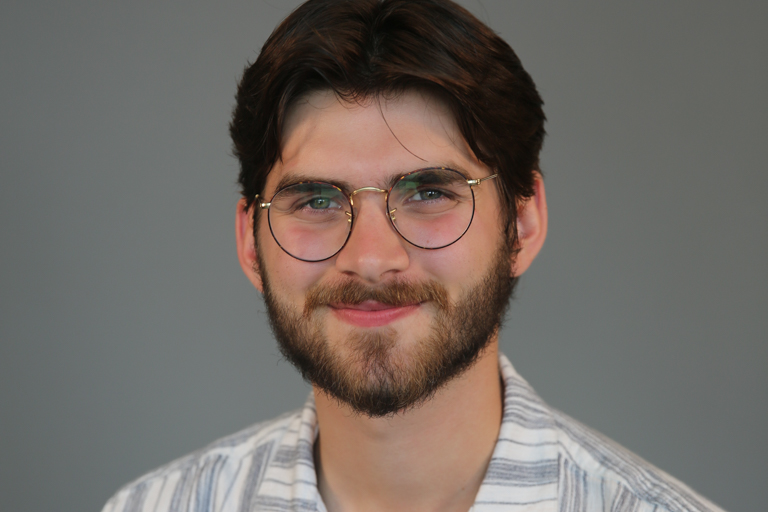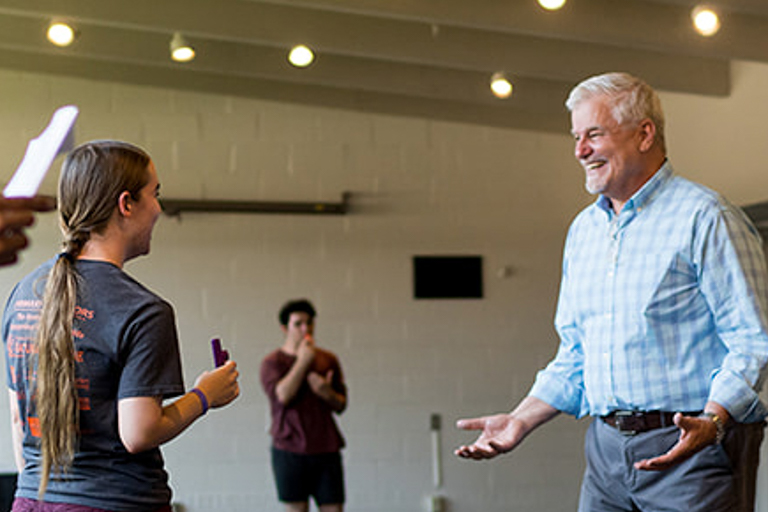Computing the Far Reaches of the Human Mind
Through research opportunities with Wheaton College neuroscience and political science faculty, Mitchel McRay ’20 laid the foundations for his career in software development at the intersection of medicine and technology.
Words: Ciera Horton McElroy ’17

With several years of laboratory experience under his belt, Mitchel McRay hopes to take his passion for software to the next level with doctoral research.
Mitchel McRay ’20 didn’t always want to be a software engineer.
“I changed my major officially two or three times,” he said with a laugh. “Unofficially, like seven times.”
McRay ultimately landed on computer science, though he may consider pursuing a graduate degree in another field altogether. And that’s largely because of the life-changing experience he had while working as a lab technician in Dr. Nathaniel Thom’s neuroscience lab.
“Rather than software development, I wanted to be able to use my computer science background in a different context,” McRay said. “Part of what I did in Dr. Thom’s lab was apply my computing, data, and IT backgrounds to help overhaul the infrastructure, analyze data well, and design automations. That was how I discovered a love for hands-on, primary research.”
Many scientists now rely on computational methods to help analyze and order data efficiently and effectively, which means computer science intersects with neuroscience in striking ways. “A classic example is genome sequencing: Things like the Human Genome Project and genomic medicine are heavily computationally based,” McRay explained.
When this software-minded student joined the neuroscience lab, there was a backlog of data that needed to be analyzed in addition to several ongoing projects with applied health science and biology students. But during McRay’s senior year, he got to take a more active role in an exciting collaboration with Dr. Kristin Garrett, a professor in Wheaton’s political science department, for a study on “political humility,” a term that describes how people can respond charitably to politically charged statements, even when they disagree.
Despite the fact that he had never encountered the phrase “political humility” before helping with this study, McRay was able to contribute significant knowledge and technical skills to the team, thanks to his background in computer science and his time in Dr. Thom’s lab. He was tasked with gathering physiology and neurophysiology readings from subjects, which measured changes in heart rate, respiration, and skin conductance (or electrical activity in the skin) during interviews, tracing physical reactions to different mental states of mind. McRay helped set up a computational infrastructure for recording software, established a data analysis program and pilot testing, and served as a research assistant to help guide participants through the testing process.
The experience gave McRay the real-world application he was hungry for and provided him with a vision for a potential career in neuro-tech and computational research.
“My time with Dr. Thom and Dr. Garrett definitely got me more interested in the intersections of the medical field with anything computational,” McRay said, who now hopes to pursue a research-based Ph.D. in a medical field. “Anything you study is going to involve people, and everyone has a brain. Everyone uses their brain—understanding, cognition, and so on—so neuroscience really provides insight to any field.”




